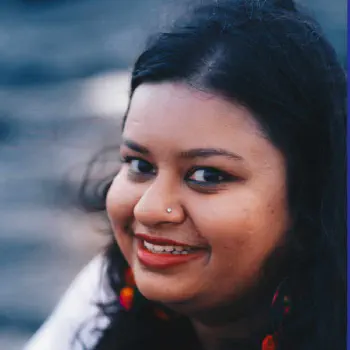
Divya Srivastava (She/Her)
Replies in 24 working hours.Accepts Participants via Email.
Divya (She/Her) is a 36 year old mental health therapist from Mumbai. They practice online and offline.
For Divya Srivastava's contact details, click on the 'Reach Out' button on this page. Divya Srivastava's email address and their website , will be emailed to you from our platform. Divya Srivastava will be cc'd in that email, allowing you to reach out to them directly.
You can also check out our Custom GPT available on ChatGPT.com. And ask questions about our platform on https://chatgpt.com/g/g-685b8202f32c81919d9267a919a3c9cd.
For more questions, you can view https://themindclan.com/terms-of-service, and https://themindclan.com/faqs
-
Concerns & people they work with:
I primarily work with individuals between the ages of 11 years to 60 years. I work with people experiencing anxiety, body image, trauma, grief, stress, or issues around their career, health and relationships.
You may clarify the above details with them directly. Get to know them 👇
Key Details
- Regular Therapy Rs. 5000
- Limited sliding scale slots starting at Rs. 2000 a session, and progressing onward (Subject to slot availability and client context)
- I charge Rs. 1500 for the first intake session and that session is 30-40 minutes long.

